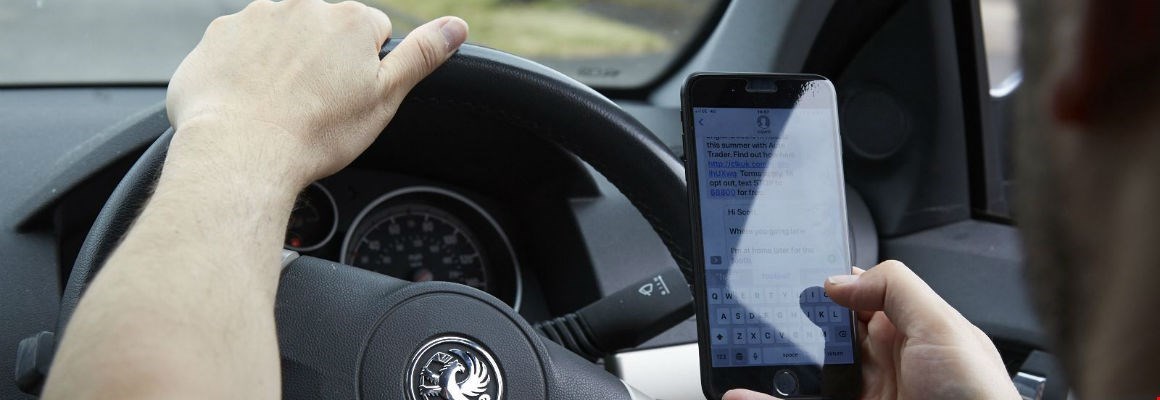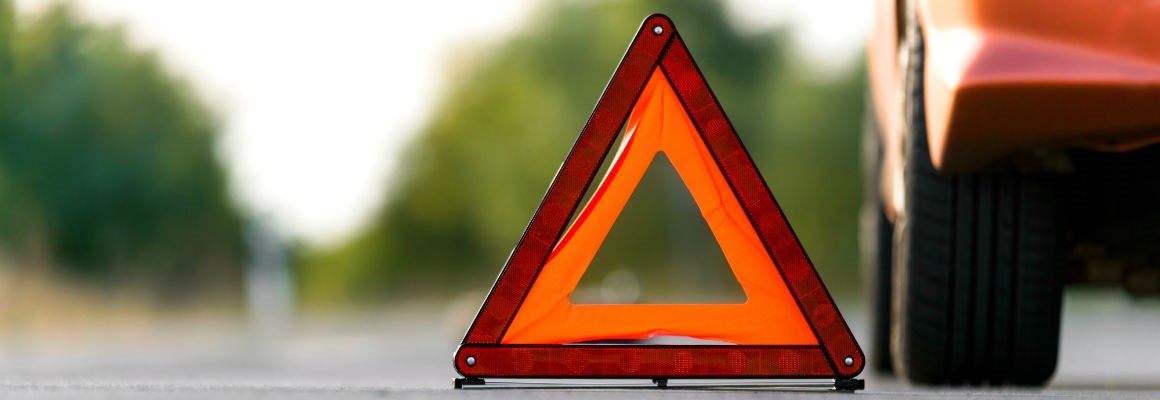Five ways to mind your road manners
Driving is a necessity for most of us: From commuting to work to dropping the kids off at school, driving is often mundane and usually uneventful. But every now and then, driving can turn even the most mild-mannered motorist into a horn-honking hothead!
While we tend to put the blame on others for any driving debacles we may experience, nobody’s perfect – we’ve all been guilty of bad road behaviour from time to time!
Plus, we all want to get from A to B safely, so what can we do to ensure we’re calm, confident and courteous drivers?
Here are five ways to mind your road manners:

1. Remove road rage
Whether you’ve been stuck in traffic for hours or your journey’s been impacted by road works, there are lots of factors that can affect your mood while driving. And that’s not even taking into consideration other drivers!
From tailgating to undertaking, the actions of others can certainly make you see red, but it’s important for your own safety and the safety of others that you don’t rise to it.
If you happen to come across conflict on the road, here’s some advice on how to approach it:
- Aim to take yourself out of an intimidating situation – if someone is travelling too close to your car or keeps cutting you up, let them go ahead.
- If another driver is being confrontational or aggressive, avoid eye contact with them and don’t react. It’ll only make things worse if you retaliate.
- If you were at fault, apologise to the other driver and leave it at that – don’t be provoked into an argument.
- If you’re fearful in any way, don’t hesitate to call the police.
Becoming enraged on the road can understandably leave you feeling upset or emotional. If needs be, pull over and take some time out. Listening to your favourite song might help calm you down.
IAM RoadSmart’s Head of Driving and Riding Standards, Richard Gladman, advises:
“It’s important not to be antagonistic or obstructive, perhaps making a person already having a bad day boil over.”

2. Watch out for distractions
We all know to look out for motorbikes, cyclists and pedestrians while driving, but what else can distract us when we’re in the driver’s seat?
Technology is an obvious one, and we don’t just mean phones! A demanding sat-nav can easily tempt you into glancing at the map, and too-loud music can divert your attention.
As Richard says:
“Driving safely requires total concentration. Being distracted can lead to errors in your judgement and may result in a collision or, at best, a close call. Why take the chance?”
With this in mind, make sure that you pull over if you need to take a closer look at the route you’re taking, or if you need to answer your phone.
Be careful with food and drink, too: While it’s not technically illegal to eat or drink while driving, it’s certainly not encouraged. It could be classed as careless driving by the police, and cost you penalty points and a fine.

3. Plan ahead
Not quite knowing where you’re going, or driving a car that’s in need of some TLC doesn’t exactly fill one with confidence…
Remember ‘OAP’, which stands for observations, anticipation and planning: Make lots of observations on the road, anticipate what could happen, and plan – don’t make any last-minute moves while you’re driving. Taking the time to plan a journey and knowing where you are and where you want to go can really make a difference!
Take the stress out of your journey by doing the following:
- Check your route: Before you set off, see if there are any incidents or road works that may cause a delay and re-route if necessary
- Watch out for the weather: Having an idea of what the road conditions are like can help you prepare for your journey, so that you don’t feel anxious about getting to where you’re supposed to be on time
- Keep your car in good shape: A few simple maintenance checks every now and again can save you a lot of hassle further down the line.
Richard also notes that we shouldn’t become too complacent with our regular routes:
“Our daily commute can become the time we pay the least attention to our driving. Plan it as if it was a new adventure each day and try to keep your concentration levels up.
“If you can vary the route, it may keep you interested, and the change of scenery may be enjoyable. If you can stagger your start time, you may be able to avoid the worst of the traffic.”

4. Stress less
Life is full of little stresses, from dealing with a troublesome self-service checkout to forgetting your phone charger. And every so often, more serious stressful situations are thrown our way, such as relationship troubles and work worries.
Whatever the source of stress is, try to deal with it before it starts affecting your everyday life, including activities such as driving. After all, driving can be stressful enough as it is!
How can you stamp out stress before you get behind the wheel?
The symptoms of stress can be physical as well as emotional. You may feel anxious and irritable. You might find it hard to concentrate. You could be experiencing sleep issues, or getting headaches. Everyone is different! Take a look at some common signs of stress, from mental health charity Mind.
It’s important to recognise when you’re not quite feeling yourself – try the following relaxation techniques before getting in the car:
- Take some deep breaths and have a glass of water: This may help to calm your nerves and relieve any feelings of sickness.
- Talk to someone about how you’re feeling: A problem shared is a problem halved, as they say.
- Go for a walk: Getting some fresh air can offer a fresh perspective.
- Ensure you’re fully rested: Research has shown that almost 20% of accidents on major roads are sleep-related – if stress is causing disturbed sleep, be mindful of this before you embark upon a long drive.

5. Prepare your car
We all hope to complete our car journeys without incident, however accidents and breakdowns can – and do – happen.
That’s why it’s important to carry some essential items that’ll come in handy should you find yourself stuck at the roadside:
- A red warning triangle
- A high-visibility jacket
Warm clothing and blankets - A first aid kit
- Something to eat and drink
- An empty fuel can
- Anti-freeze and an ice scraper
- A torch
- A set of jump leads
- A charged-up phone!
Richard says:
“Getting stranded, either in suddenly-changing weather conditions, breakdowns or road closures, will be made more bearable if you can let people know where you are, and survive in relative comfort and safety until you can get on your way."
Also, don’t underestimate how many problems bad weather can cause for drivers! Drive down any doubts you might have by reading our guides to driving in winter,
floods and storms.
How do we reduce driving stress by minding road manners?
- Remove road rage: We’re all human, and we all make mistakes! Most mistakes made on the road are unintentional, so try not to take things too personally. Be a kind and helpful driver, rather than an angry one!
- Watch out for distractions: Remove/put away anything and everything that could distract you while you’re on the move – the last thing you need is to have your attention diverted.
- Plan ahead: Don’t forget ‘OAP’! Observe your surroundings, anticipate what could happen, and plan your route.
- Stress less: Don’t rush into your journey, and take time to relax before you set off.
- Prepare your car: Knowing that you have something of a ‘survival kit’ in the boot will give you peace of mind, as will carrying out regular checks on your car.
Related articles
Beat Driving Stress
We have researched what is the most stressful aspect of driving to find out if the UK is a nation of stressed drivers and commuters.
Driving anxieties and top six stressors
What causes driving anxiety? Our study shows stressful events on the roads can make drivers more anxious.
Challenge Gethin
We challenge Gethin Jones to take on some of the most stressful situations UK drivers face on their daily commute.


